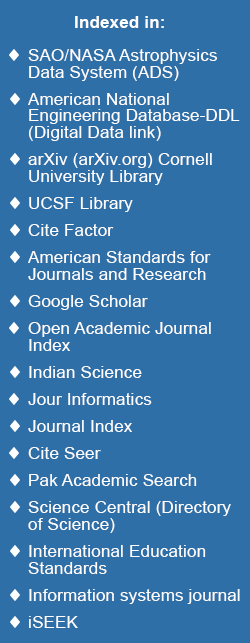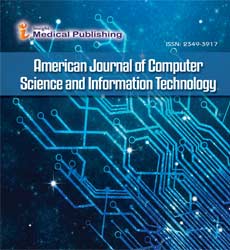ISSN : 2349-3917
American Journal of Computer Science and Information Technology
Computer Science and Information Technology: New Trends in Educational Research
John Lenon E Agatep*
Department of computer science, AMA Computer College/School Director, ACLC Macau, China
- *Corresponding Author:
- John Lenon E Agatep
Former Dean, AMA Computer College/School Director, ACLC Macau, China
E-mail: jleagatep@amaes.edu.ph
Received date: April 20, 2018; Accepted date: April 26, 2018; Published date: May 08, 2018
Citation: Agatep JLE (2018) Computer Science and Information Technology: New Trends in Educational Research. Am J Compt Sci Inform Technol Vol.6 No.2:20
Copyright: © 2018 Agatep JLE. This is an open-access article distributed under the terms of the Creative Commons Attribution License, which permits unrestricted use, distribution, and reproduction in any medium, provided the original author and source are credited.
Editorial
It is with no doubt that over the years, the evolvement of Computer Science and Information Technology benefits man in many ways. Number of researches discusses the increasing demands in Computer Science and Information Technology not only in industries but also in Academe.
A series of technological innovations in the classroom – including a game that requires players to solve quadratic equations – is set to change the way subjects as diverse as music and maths are taught in schools. The government is also helping to run a pilot of an initiative imported from the US, which uses computer visualisations to teach maths. The use of technology in schools marks an increasing convergence of the classroom with children's home lives [1].
Consequently, Computer Technology benefitted Academe nowadays in terms of invention of new system to be used in teaching as instructional strategies, pedagogical approaches and learning resources and often leads to creative teaching. Computers have simplified and streamlined the process of education for millions of young teens, college going students and post-graduates. The use of computers has democratized the influence, reach and penetration of education and knowledge to students in far-flung and geographically remote regions. Personalized learning on the other hand, is another trend that has arisen as a result of technology in education, mainly through the use of the Internet. The basis for this is that individuals can learn at their own level of understanding and at their own pace. The aim of personalized learning is to encourage students to be more responsible for their own learning, to be more independent and to give students the opportunity to learn in ways that suit their individual learning styles [2].
Learning is a process, and it is part of our daily lives. Modern technology has made it simple for students to learn from anywhere through online and mobile education. Also, students now use modern technology in classrooms to learn more effectively. For example, students use tablets to share visual lessons and examples with peers in the classroom; this has made learning more convenient and fun. Also, new modern educational technologies support individual learning which gives students a chance to learn on their own with no need for tutors [3]. Nevertheless, creative teaching takes risks and needs courage. Brave teachers try new things and should also be prepared and well-equipped to solve unforeseen problems brought by creativity come out during technology trends implementation in education. Procedures in learning outcomes should not be impeded. We are in such a century that we depend mostly in technology; however, excessive and off beam used of it may lead to negative effects that often leads to addiction and ways defeating the purpose why technology has been invented such as human laziness, total dependence and inability to think since everything has been programmed. Thus, technology development is not driven to maximize all of academe's goals in general [4].
This further challenge CS/IT educator-researchers to conduct in-depth study that will focus their researches and findings not only on developmental design or invention of new system or technology but also in descriptive and experimental design of researches that will help solve the problems brought by excessive or wrong used of those technology inventions and hence considered as the current trend in educational technology research. Future innovations and improvements in Educational policy, curriculum, methods, strategies, pedagogical resources and instructions will be brought by innovative findings of CS/IT educator-researchers.
References

Open Access Journals
- Aquaculture & Veterinary Science
- Chemistry & Chemical Sciences
- Clinical Sciences
- Engineering
- General Science
- Genetics & Molecular Biology
- Health Care & Nursing
- Immunology & Microbiology
- Materials Science
- Mathematics & Physics
- Medical Sciences
- Neurology & Psychiatry
- Oncology & Cancer Science
- Pharmaceutical Sciences
